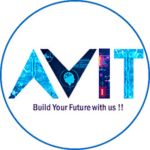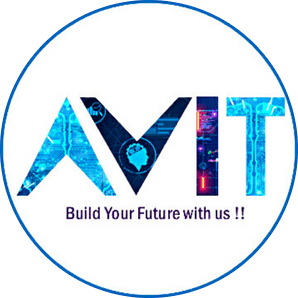- Home
- »
- Website Development in Patna
Website Development
The Website Development Course introduces participants to building and maintaining websites using HTML, CSS, and JavaScript. Ideal for beginners and those looking to enhance their skills, it combines practical projects with a supportive learning environment.
Program Features
- Live Instructor- Led Sessions
- Fundamentals to Advanced
- Hands-on Live Projects
- Assignments and MCQs
- Hands-on Learning
- 24*7 Support
About Website Development
The Comprehensive Website Development Course is designed for beginners to intermediate learners looking to build modern websites. The course covers essential topics, starting with an introduction to web development and HTML/CSS basics. Participants will learn JavaScript fundamentals, including DOM manipulation and advanced ES6 features, along with version control using Git and collaboration on GitHub.
The curriculum also includes responsive design principles, backend development with Node.js and Express, and database management using MongoDB or MySQL. In the final weeks, learners will integrate their frontend and backend knowledge to create a full-stack application and explore deployment options on platforms like Heroku or Vercel. The course culminates in a capstone project where participants will build and deploy their own website or application, providing a solid foundation for further exploration in web development.
Program Features
Shareable Certificate
Earn a Certificate after Course completion
Internship Opportunities
A chance for students or young professionals to gain valuable experience
Lab Sessions
We Provide 80% Hands-on learning
Placement Assistance
100% Job Placement assistance
Language
Avilable in Both Language Hindi & English
What Will You Learn
HTML
Learn how to create the foundational structure of websites using HTML. You'll explore essential tags, elements, and attributes to build forms, tables, and multimedia integration.
Responsive Design
Learn how to design websites that adapt seamlessly to different devices, ensuring a consistent user experience on mobile, tablet, and desktop.
CSS
Master CSS to design visually appealing websites. This includes working with CSS selectors, properties, and responsive design techniques like media queries, flexbox, and grid systems.
Version Control (Git and GitHub)
Understand the importance of version control using Git. You'll learn how to manage code changes, collaborate on projects, and utilize platforms like GitHub for teamwork.
JavaScript
JavaScript enables interactivity on websites. You'll cover basic programming concepts, DOM manipulation, and event handling to create dynamic user experiences.
Web Hosting and Deployment
Learn to host and deploy websites using platforms like Netlify and GitHub Pages, making your site live easily. You'll also manage custom domains, SSL certificates, and DNS settings for secure, global access.
Skills You Will Gain
- HTML Proficiency
- CSS Expertise
- JavaScript Fundamentals
- Responsive Design Techniques
- Version Control with Git
- Deployment Skills
- Basic Backend Understanding
- SEO Best Practices
Tools Covered





Who can enroll in this course?

Students
College students studying computer science or related fields looking to enhance their practical skills.

Tech Professionals
IT professionals, like System admins and network engineers, are interested in server engineering.

System Administrators
System admins looking to expand their expertise in managing servers, networks, and security

Career Switchers
Professionals from non-technical backgrounds who want to transition into the field of software development.
Job Opportunities
There are numerous job opportunities available for individuals with skills and knowledge in web development. As businesses increasingly establish their online presence and require robust websites, the demand for qualified web developers continues to grow. Here are some common job roles that require web development skills
1. Front-End Developer
Focuses on the visual and interactive aspects of websites, using HTML, CSS, and JavaScript to create user-friendly interfaces that enhance the user experience.
2. Back-End Developer
Works on the server side of applications, managing databases, server logic, and application integration to ensure smooth data flow and functionality.
3. UI/UX Developer
Server Engineers often have knowledge of networking technologies and may be qualified to work as Network Engineers. In this role, you would be responsible for designing, deploying, and managing network infrastructure to support the organization’s server systems.
4. SEO Specialist
Focuses on improving user interaction and experience, conducting user research, and implementing design principles to ensure that websites are intuitive and easy to navigate.
5. WordPress Developer
Specializes in creating and maintaining websites using the WordPress platform, customizing themes and plugins, and optimizing sites for performance and SEO.
Website Development Course Curriculum
- Overview of web development roles (Frontend, Backend, Full-stack)
- Web technologies and the development process
- Tools and setup (code editors, browsers, version control)
- Introduction to HTML and document structure
- Common tags: headings, paragraphs, links, images, lists
- Forms and input types
- Semantic HTML and accessibility considerations
- Styling basics: colors, fonts, spacing
- CSS selectors and specificity
- Box model, margins, padding, and borders
- CSS Flexbox and Grid for layout design
- Responsive web design with media queries
- JavaScript syntax: variables, data types, and operators
- Control structures: conditionals and loops
- Functions and scope
- DOM manipulation and event handling
- ES6 features: let, const, arrow functions, promises, async/await
- Introduction to Git and version control
- Basic Git commands (init, commit, push, pull)
- Working with branches and merging
- Collaboration on GitHub (repositories, pull requests)
- Mobile-first design principles
- Creating fluid layouts with CSS Flexbox and Grid
- Media queries for different screen sizes
- Introduction to responsive frameworks like Bootstrap or Tailwind CSS
- Introduction to server-side programming with Node.js
- Setting up a basic Express server
- RESTful API design and development
- Introduction to database management: CRUD operations with MongoDB or MySQL
- Connecting frontend to backend (AJAX and Fetch API)
- Building a simple full-stack application
- User authentication and authorization basics
- Implementing security best practices (password hashing, data validation)
- Overview of hosting services (Heroku, Netlify, Vercel)
- Deploying static websites and full-stack applications
- Domain setup and management
- SSL certificates and securing your website
- Planning and designing a complete website or web application
- Integrating frontend, backend, and database
- Testing, debugging, and optimizing performance
- Final project presentation and peer review
Website Developer Certification
Our Website Development Program is exhaustive and this certificate is proof that you have taken a big leap in mastering the domain.
The knowledge and web development skills you’ve gained through hands-on projects, simulations, and case studies will set you ahead of the competition.
Target Companies

Frequently Asked Questions
While prior experience in programming is beneficial, it’s not mandatory. A basic understanding of HTML and CSS is helpful, but the course is designed to accommodate beginners.
The course typically covers essential languages such as HTML, CSS, JavaScript, and may also include frameworks like React or libraries like Bootstrap.
Yes, participants will receive a certificate of completion, which can enhance your resume and demonstrate your skills to potential employers.
Absolutely! The course includes hands-on projects that allow you to apply your skills in real-world scenarios, helping you build a portfolio to showcase to employers.
Graduates can pursue various roles, including Front-End Developer, Back-End Developer, Full-Stack Developer, Web Designer, and more in the growing field of web development.



